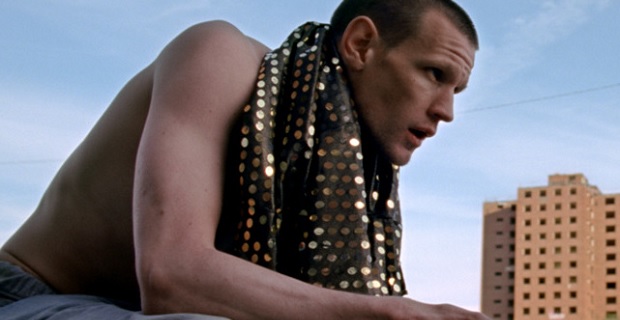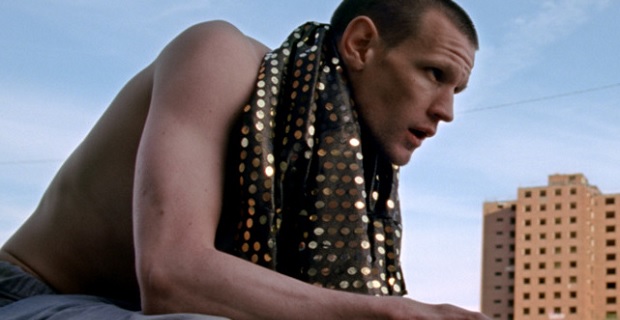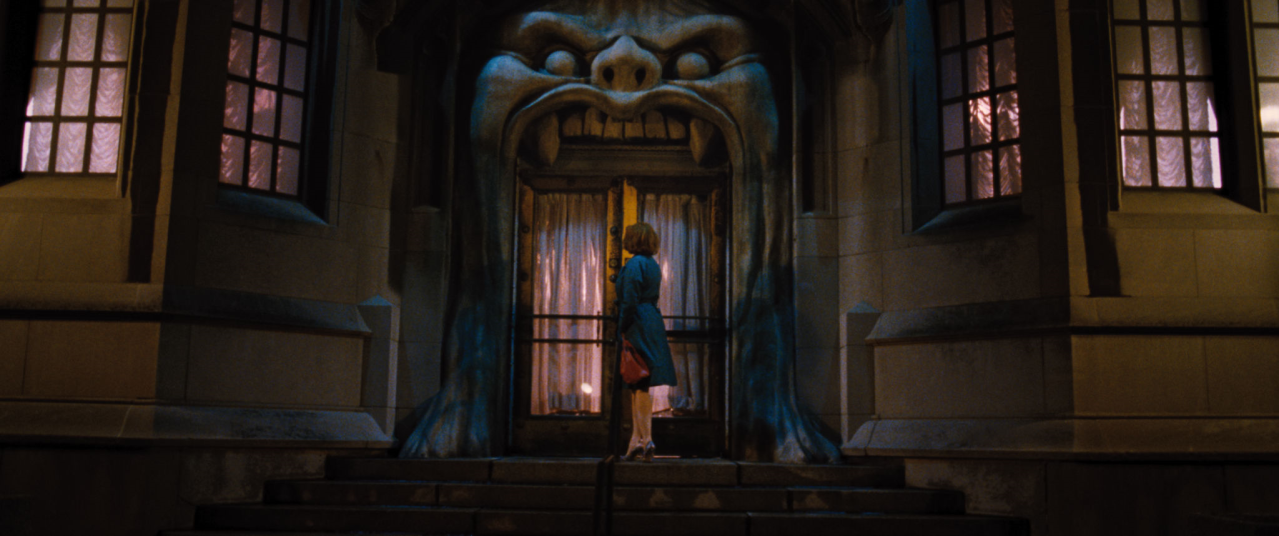Review: Ryan Gosling’s Anti-Misogyny Directorial Debut Lost River Deserves A Look
By Hollywood's feminist poster boy.


Premiering your movie at the Cannes Film Festival can certainly be a double-edged sword; yes, it is arguably the most prestigious and widely-covered international film festival in the world – but the critics have a tendency to be very vocal about what they like and what they don’t. So while some filmmakers can receive unbearably long standing ovations (thirty minutes? Come on), others can be treated to audiences, especially critic-filled audiences, who will boo. Loudly. And the filmmaker will most definitely know of critic dislike long before any reviews are written.
That’s what made Ryan Gosling’s decision to premiere his directorial debut, Lost River, at Cannes (rather than a more “first time director” festival) a real gamble that may not have paid off in the end, commercially. He got booed; he received bad reviews; and, feeling unable to market the film, Warner Bros dropped their distribution from limited and art house theatres to releasing it in barely any theatrical markets the same day that it hits VOD.

Did Lost River deserve such a fate? Well, no; but the negative buzz surrounding the film might have been the best thing for it. No matter the praise a movie does or does not receive, a niche film that gets championed via word-of-mouth can help it to do better than if they’d released it to a wider audience. Because this movie does have an audience out there – it’s an “adult fairy tale,” set in the modern era with all the sexuality and violence of the pre-Disney variety. There’s fire, dragons, and rats; not to mention two very threatening men trying to get to a fragile single mother and son inside a house they refuse to abandon that’s on the verge of falling apart.
That’s the core story of Lost River, which previously went by the more interesting and tonally accurate How to Catch a Monster, which suggests the surreal, horror fantasy the movie is attempting – and complete lack of subtly it seems to want to have. Christina Hendricks plays Billie, a woman who bought her grandmother’s house with a mortgage loan she realizes too late she can’t payback. Billie goes to the bank for help and is confronted by the new bank manager, Dave (Ben Mendelsohn), who informs her that the only way to keep the house she clearly can’t afford in a neighborhood in which she shouldn’t want to stay, is to work in his night club. The night club isn’t a strip club, but aims to appeal to the same restless urges by simulating violence in theatrical stage shows (the definition of torture porn). Desperate women like Billie are brought in to simulate mutilation and murder under the guidance of star Cat (Eva Mendes), while men laugh and cheer. But downstairs is where the men get to get in on the act – and how the women make real money.
The parallel story focuses on her equally-desperate son Bones (Agents of SHIELD‘s Iain De Caestecker) who is trying to scrape together the money to escape Lost River by scavenging scrap metal from old buildings. But this enrages town bully Bully (Matt Smith), who drives through town with a bullhorn declaring it “Bullytown,” and threatening anyone who steals from his buildings. Bones befriends Rat (Saorise Ronan) who owns a pet rat (like I said, this movie is not subtle), and Rat suggests getting on Bully’s the bad side is yet another, better reason to escape a town with no jobs, houses, or prospects.

But while the movie isn’t subtle, neither is it cynical nor lazy. Clearly, the film was made with far more purpose than I think a lot of critics who saw it at Cannes seem to want to give it credit for. While the current day economics parable isn’t as dated as it perhaps should be, the sexual dynamics are disturbingly accurate in the time of Gamergate, reports of sexual assaults and sex crimes on universities, and anti-feminist debate. Lost River may or may not be called a feminist film, but it is certainly a film which wants to make pretty strong statement about a culture of misogyny, which is a strong and important comment which needs to be made – and made by a male filmmaker.
The movie does an excellent job of actually showing what women mean when they say they feel threatened by the way in which certain men interact with them. The scenes between Ronan and Smith make you genuinely concerned for her safety, and despite being the only man in a suit with money around, Mendelsohn’s interactions with Hendricks make you immediately want to itch like crazy. His delight in intimidating her, financially, sexually, and ultimately physically, makes for one of the most upsetting scenes of violence against women I’ve seen in sometime. Hendricks’s absolute terror isn’t just an impressive performance, but your connection to her in that moment will definitely get under your skin. I never knew dancing could be quite so threatening an act.
Actually, pretty much all the performances feature really strong work from Gosling’s cast of former costars and friends. And like a lot of horror films, the actors are responsible for filling in a lot of the gaps in their characters, which the best of them do surprisingly well. I do feel Matt Smith’s character was a bit haphazardly put together; being the shadowy monster that terrorizes the town, we almost need to see less of him, or Gosling should have fleshed out his character a bit more (it doesn’t help when you have a villain in a suit with a lisp in the same movie who is arguably scarier). Reda Kateb as Billie’s driver also seems to have been underdeveloped or drastically cut down, to the point that his role in the film doesn’t make sense. B-horror fans from the ’60s will know Barbara Steele (as Ronan’s grandmother) and get a kick from seeing her in a film it’s entirely possible that she would have been in the ’60s – but she doesn’t have much to do.

Steele is probably best known in the horror world for films like Black Sunday, a vampire film from Mario Bava. Gosling has clearly seen these films, and borrowed heavily from many of them, including work from Bava, Dario Argento, David Lynch, Nicolas Winding Refn, and Derek Cianfrance. I’m sure there were others, but watching the movie, I actually did get pretty involved in the story, and doing what I think the movie intends – letting the visuals just kind of wash over me like the water, which is a huge metaphor in this movie. There are definitely some striking images that can easily distract as much as they add to the film (I don’t think there is a scene that doesn’t utilize a filter), but if you are in the right state of mind, it’s actually an engrossing look at world without order, ruled by predators.
So why did this movie get booed? Why does it currently hold a 20-something percentage on Rotten Tomatoes? Honestly, I don’t know. I was expecting Lost River to be a hot mess, even if it was interesting. It wasn’t, and with the exception of borrowing more than creating his own images, and some clumsy moments in the script, Gosling should have a bright future as a filmmaker. What might be the problem, however, is the fact that he was working in genres (horror, fantasy, and even musical elements) from which people expected something else. Instead, expect the weirdness of this movie, because if you’re expecting a straightforward, naturalistic drama, you’ll probably will be booing it, too. You also need to be in a certain mood to just invest in the 90-something minutes of this movie without interruption, which makes releasing this as a VOD movie a smart move. Check out Lost River when the mood strikes.
Lost River will be available in very limited theatres and on VOD this Friday April 10.
Lesley Coffin is a New York transplant from the midwest. She is the New York-based writer/podcast editor for Filmoria and film contributor at The Interrobang. When not doing that, she’s writing books on classic Hollywood, including Lew Ayres: Hollywood’s Conscientious Objector and her new book Hitchcock’s Stars: Alfred Hitchcock and the Hollywood Studio System.
Are you following The Mary Sue on Twitter, Facebook, Tumblr, Pinterest, & Google +?
Have a tip we should know? [email protected]